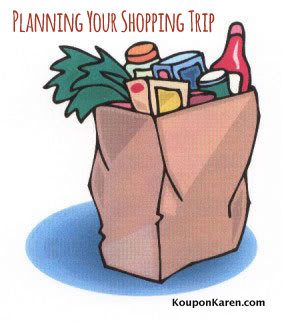Occasionally, grocery stores launch big-value sales (think 50% to 90% off on items!). Depending on how you navigate such events, you’ll either save a lot or go beyond the budget.
How do you ensure that you save instead of spending more? Here are a few tips:
1. Avoid Paying Full Price for Brand Items
We tend to buy branded items because they’re familiar. However, most of the time, they’re pretty expensive, especially next to their generic counterparts. Is that difference worth it?
Most of the time, it isn’t. In terms of quality, there’s hardly any difference between brand items and their generic counterparts.
Thus, if you want to save money, buy generic as much as possible. They’re significantly cheaper (especially when on sale).
However, if you prefer branded products, look out for sales or promos that cover them! Most stores offer discounts and coupons for costly ones, so you can avoid paying full price.
To find those sales, you can check online or canvas grocery stores. If you’re a weekly ad subscriber, you can use it to see if your preferred item is on sale.
2. Consider Bulk Buying
You pay more upfront when you bulk shop, so it feels like you are saving little. However, if you monitor your expenses, you’ll discover that you are making significant savings in the long run because you shop less and get the items at lower unit prices.
However, don’t just bulk buy anywhere. In some grocery stores, whether you bulk buy or not, there’s no difference – everything is still expensive. But the difference between buying per unit and bulk is significant for some places.
For instance, in Costco, nearly everything is sold in bulk, so products aren’t taken out of their packaging or boxes. This makes them cheaper, as the store doesn’t have to pay workers to unbox, sort, and arrange them.
Although there is a membership fee at Costco and other similar stores, you’ll find it worth it when you consider how much you’ve saved when you shop strategically. With that, remember to buy wisely – don’t get carried away by the number of cheap items, but at the same time, don’t let your fee go to waste.
If Costco is too far for you or you want to avoid paying membership fees, what you can do instead is to check if your local or favorite grocery store is launching sales for bulk items. Sometimes they do that, and you can take advantage of them.
3. Don’t Shop Hungry
When it’s sales season in your grocery store, it’s crucial to get there as early as possible to avoid being stuck with leftovers. However, that doesn’t mean you should take off with an empty stomach.
Shopping hungry makes you more susceptible to buying unnecessary stuff, especially food products. It’s also harder to think clearly, so you can’t compare prices and assess the quality or worth effectively.
4. Plan Your Shopping Trip
The best way to maximize savings when you shop is to have a plan before you even hit the grocery store. Just walking in and going by memory and feeling will lead to unnecessary impulse purchases that could have been saved.
So how do you plan a grocery trip? Firstly, have a meal plan. When you go to the grocery, it’s often for food, and if you buy based on what looks and feels delicious, you can’t control how much you spend.
Next, craft your shopping list based on your meal plan plus other necessities. For instance, if you need to buy soap for this week, add that to the list along with the ingredients to make this week’s meals.
Lastly, schedule your shopping trip. Ensure you have adequate time to compare prices and look for marked-down items.
Also, ensure that it coincides with the days or times when clearance sales, coupons, and promos are just launched. You can ask the store manager for those.






